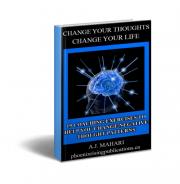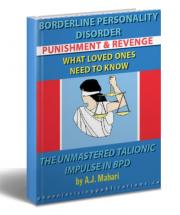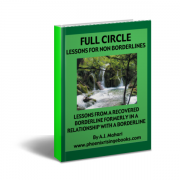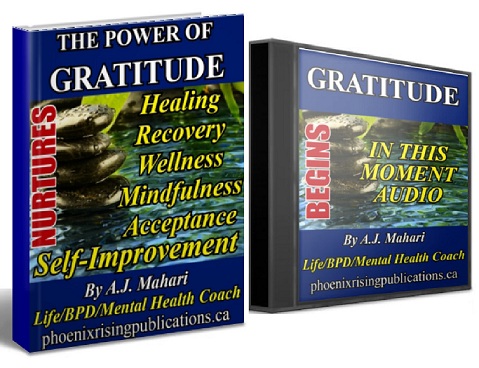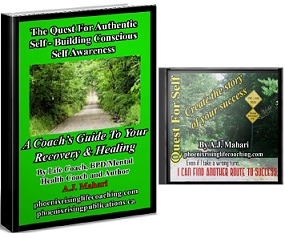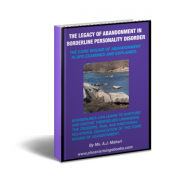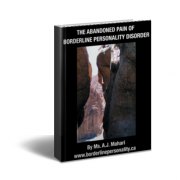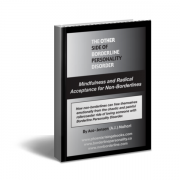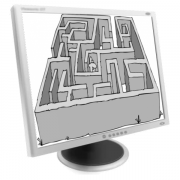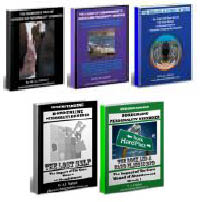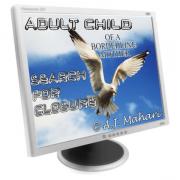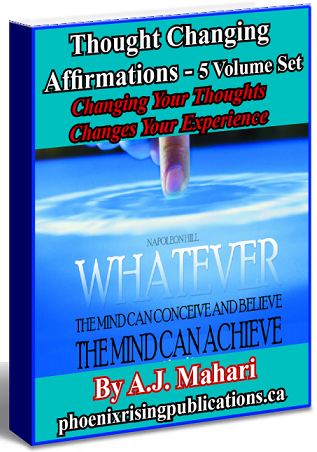The Abandonment Wound in and of
Borderline Personality Disorder
At the heart of Borderline Personality Disorder lies abandonment. Abandonment trauma, abandonment depression, abandonment fears, and the deep and most primal narcissistic intra-psychic injury a human being can ever hope to survive - the core wound of abandonment.
It is very common for a person with Borderline Personality Disorder (BPD) to have deep issues with abandonment, both real actual abandonment, and/or abandonment that is perceived by them. (or perhaps is thought to be about to take place) It is one of the "traits" or diagnostic criteria for BPD.
In my own case what I know about this the core wound of abandonment. is that I was abandoned (in the sense that my needs were not met - along with having been sexually and physically abused) as a young child and that it not only is the major reason I had Borderline Personality Disorder but that it changed the entire course of my life until I was in serious therapy at the age of 33. It was such a painful experience that I truly lost my authentic self. I lived, when I had BPD, from a lack of self, a void of self. It was an extremely painful place to live in and from when I had BPD.

This abandonment was both a lack of met needs and a lack of emotional nurturance. What I believed I learned from this abandonment was not to trust anyone, that "they" will not be there when I "need" them to be there. This was the case in my initial or "original wound" (Bradshaw). That state of panic, of hunger, of unfulfilled need, experienced by me as abandonment, coupled with the emotional abandonment generally and of sexual abuse specifically, along with the betraying abandonment of physical abuse and emotional neglect that actually took place and was not just perceived as such by me, taught me that I was not important, that I was not worthy. I learned to associate a powerful sense of shame to having any need whatsoever. As you will read about in my upcoming Memoir my recovery from BPD was a journey through the re-living of my core wound of abandonment - a re-living of it in which I peeled back all the defenses I had used for over 30 years of my life to defend against this agonizing and very terrifying reality of the loss of my authentic self - a self that I needed to find and rescue from the active throes of BPD - a self that I needed to learn to re-parent and parent and to nurture and connect with.
- Purchase all 3 of ebooks for NON BORDERLINES
- Non Borderlines - You can purchase 6 ebooks packaged together with or without audio.
- Those with BPD and/or Non Borderlines can purchase A.J. Mahari's 3 "Core Wound of Abandonment" series ebooks packaged together with or without audio.
From this, understanding of BPD and the impact of the core wound of abandonment then, subconsciously I derived much. Instead of growing up with some semblance of trust and inter-dependence, and a healthy sense of risk and need I was left "needy". This "neediness" was then viewed as "bad" or "less than" in my family. I learned to hold this anger. A stockpile of anger created by frustrated needs - unmet needs. Unmet needs for which I was often punished by my parents (who had BPD) and taught to feel shame for needing anything. We all have needs. It is healthy to have needs that require answering. As a child it is up to someone else to meet those needs for us until we are old enough to meet them for ourselves.
I was wounded. I had been abandoned and perceived further abandonment. I lacked nurture. There was no love in this. I learned that love essentially was hate-filled. I learned to hate. I learned what became the love-hate of Borderline Personality Disorder. I learned to focus on all that I did not have. I became egocentric. As young children we are the center of the universe. It is when these feelings are carried over into adulthood that we see the term "borderline" applied to those with these residual aspects of the early stages of development. I learned how to expect and even set-up recurring abandonment as a theme in my life. Loss after loss after loss it took me years to "get it." When I "got it" I found that no one else can truly abandon me now. Having recovered from BPD I have my authentic self now. I have a stable container for my own emotions now. I am an adult and when I meet my own needs people are free to come and go as they please in my life. I do not perceive this as abandonment anymore. I am not the center of the universe anymore. (not even in my head)
I was first abandoned. My needs were not met. I did not develop trust. I did not learn to love. I did not experience what it felt like to be loved or nurtured. I learned to abandon myself. People in the active throes of BPD will abandon you (the non borderline) because they abandon, time and time again, any connection to the lost authentic self that they, upon becoming more aware of, could cultivate but often don't for fear of the pain that stands between the false self and the lost authentic self. Time and time again, from within the centre of the active throes of BPD, as I grew older, I would abandon and re-abandon myself. For years I did not know this was the case. All I knew was that I was agitated or angry again and that it was someone else's fault.
I developed a pattern of re-creating situations of abandonment in my life. Some would argue I did this because it was all that I knew. No. I would argue that I did this in search of, ever seeking, the "fix" to the "original abandonment". I was trying to have the situation play itself out in a way that would once and for all satisfy me, make sense to me, make me feel better. The tragedy of BPD, however, is that no matter how many times one, in the active throes of BPD, re-plays out his or her the core wound of abandonment the much-needed fix cannot be attained without professional help.
An abandonment wound is a hole in the soul. I learned through the course of my healing that all of the recapitulation in the world was not going to yield me with the results I had so needed years and years ago. Nothing could fill the hole in my soul. I was wounded. Like any wound, it hurt profoundly. And like any wound it can not be un-wound, or undone. It must be healed. To heal means facing one's pain - the very pain that most with Borderline Personality Disorder are too afraid to face. The very pain that borderlines dissociate from and learn to hide away from their consciousness through all of the defense mechanisms of the borderline false self as I've written about in my ebook, The Shadows and Echoes of Self - The False Self in BPD. It is this pain that also is the source of so much Rage - rage that manifests everything borderline in ways that keep those with BPD stuck in the active throes of the patterned and repetitive suffering of BPD. Pain and suffering that is also extended out to those who are closest to people with BPD. This rage can be expressed outwardly or it can be expressed more inwardly by those referred to as "quiet borderlines".
As I came to better understand the aspects of my behaviour with regard to the re-playing of my infancy/childhood and trying to capture what had eluded me all of my life, in therapy, it all started to become apparent. I was not going to get another "parent", it was now up to me to be the parent that the child aspect of me so needed, and had always needed. It would only be through hindsight, after I was well on my way to healing the hole in my soul, my original abandonment wound that I would realize that there was only one way to heal it. I had to be the one to heal it. It was up to me.I had a choice to make, I could stay angry and feel as if I was "right" to be so hurt and that what happened to me as a child was "wrong" - I could stay wounded or I could get past the "right" and "wrong" of it all - radically accept it all - and make the choice to get well. A choice I made and you can read about in my up-coming Memoir
It was my hole, my soul, my wound, my problem. Blame, or what have you, mattered not anymore. I was tired of hurting. In order to heal this wound all I had to do was get "real", get "honest", about it and with it enough to "feel" the pain, to grieve the losses and to learn to let them go. As I did these things, my life began to change. I was a changing person. I learned to be alone.
I learned to soothe myself. I learned that my feelings are my own and that no one has the power to make me feel anything. I choose what I feel. I had two parents that failed me miserably. I am not entitled to anymore parents. People that come into my life, friends, or lovers, are not doing so to re-parent me. This may sound simplistic but it is one of the base sources of why borderlines are not able to sustain consistent long-term relationships (friendships). It is that neediness, those abandonment fears, that lack of trust along with the "acting out" of your past and the looking to "other" to do what you need to do for yourself. Each of us must take care of ourselves. When you, as a borderline, demand that another take care of you, when they try, they then effectively abandon themselves. Then you have two wounded people.
- Purchase all 3 of ebooks for NON BORDERLINES
- Non Borderlines - You can purchase 6 ebooks packaged together with or without audio.
- Those with BPD and/or Non Borderlines can purchase A.J. Mahari's 3 "Core Wound of Abandonment" series ebooks packaged together with or without audio.
I slowly began to alter my behaviour to the point that I no longer played out and re-played out the past and the abandonment wound.
Instead, I took responsibility for my pain and for what I needed in the present. I cried rivers of tears. I wrote seemingly-endlessly in my journal to the point where I wondered if I had used a forest of tree's worth of paper.
I learned that I had been projecting my original abandonment wound and all my associated fears of abandonment onto anyone that I came even remotely close to. The reason was simple, I was not taking care of myself. I kept looking to others (even way into adulthood) to take care of me. It is this very demanding that others take care of you that so drives them back and or away, thus leaving you yet again, "abandoned" and "wounded".
In the end, sooner or later they - Non Borderlines must go, in order to save themselves and their own health and sanity.
Until a borderline accepts personal responsibility for their own pain and their own needs and their own inability to meet their own needs the past "holds" (owns) your feelings and keeps them at bay (hidden from you) in the guise of some "outside monster" that will annihilate you should you dare to try to feel what you actually feel. This is where the pain of illusion and myth and a lack of understanding of what is real, in the big picture, from what we think is real in our own "egocentric" picture keeps you stuck and a prisoner to borderline thinking. And you are responsible for this. Once you reach adulthood, it is yours. It belongs to no one else but you.
So central to BPD is this issue of abandonment, that as painful as it is rather than heal it, over and over again, borderlines, tend to re-feed it. Until you look deeply into this process you will not realize that you are the one feeding your own fear of abandonment and that you are the one choosing to not trust others.
Granted, how are you supposed to trust others to be there for you when you still refuse to be there for you? No one can give you what you most need -- NO ONE! You are the only person that can find your way to the ache, to the base of that pain, to giving appropriate, healthy expression to that pain and to setting it free, letting it go and to the change that you require to end your borderline agony. You will be abandoned for as long as it takes you to learn that you are the one that is abandoning and re-abandoning yourself. You are the one that is pushing others away with your behaviour. You are sending mixed messages. You are too "needy". You need to learn how to be who you are, and then to be okay with that person, and most importantly of all, how to be alone with that person that you are, and meet your own emotional needs.
Only after you have worked this through cognitively and emotionally grieved it will you have room to learn how to love and be loved, to know others and to trust others to know you. Only when you have helped yourself (through therapy too) grow past the wounds of your childhood and emotionally become the adult that you physically became (perhaps years ago) will you begin to know life beyond abandonment. Life beyond abandonment involves living in a place called "healthy risk" and "appropriate vulnerability". There is no being a closed book.
There is no living behind wall after wall. No one, aside from you, has an obligation to chase you behind all the walls that you use to protect yourself from the very pain that you keep re-inflicting upon yourself.
Abandonment is real. (Whether actual or perceived) To the sufferer it is REAL! It is excruciatingly painful. It does not have to go on. You can make the difference that you need to make to find happiness and peace inside. Yes, it hurts to heal. But in my estimation, from where I stand now, it would have hurt far more to have remained the same (as I was) and to not be experiencing so much of what I am now. Abandonment does not have to be a lifetime experience.
Once you find yourself, grieve the past and learn how to be there for yourself in the present you will not ever again have to feel that "original abandonment" again. It takes courage to walk into the pain that it takes to heal your abandonment wounds. As one who has done it, let me tell you, it IS worth it. Don't abandon one more minute of your here and now, or your tomorrow to your yesterday. Take the past's power away. Find yourself and love yourself enough......it will be enough.... and the ache of nothing ever being enough will also pass - stop re-abandoning yourself and blaming everyone else.
© Ms. A.J. Mahari - May 16, 1999 - with additions on November 9, 2008
A.J. Mahari is currently writing a memoir about her life and experience as a person who had two parents with Borderline Personality Disorder, as a person who was diagnosed herself with BPD at the age of 19 and from her perspective as someone who has recovered from BPD. There is a new section on her BPD Blog called The Diary - My Borderline Years where A.J. Mahari shares snipets of experience from her own life that will give you just a small peak into what her memoir will include.
Audio Program "Preparing For Recovery From BPD" Parts 1 & 2 by A.J. Mahari
Audio Program Rage Addiction in BPD by A.J. Mahari (sold separately or packaged with Mahari's Ebook, "Rage and BPD")
- Purchase all 3 of ebooks for NON BORDERLINES
- Non Borderlines - You can purchase 6 ebooks packaged together with or without audio.
- Those with BPD and/or Non Borderlines can purchase A.J. Mahari's 3 "Core Wound of Abandonment" series ebooks packaged together with or without audio.






